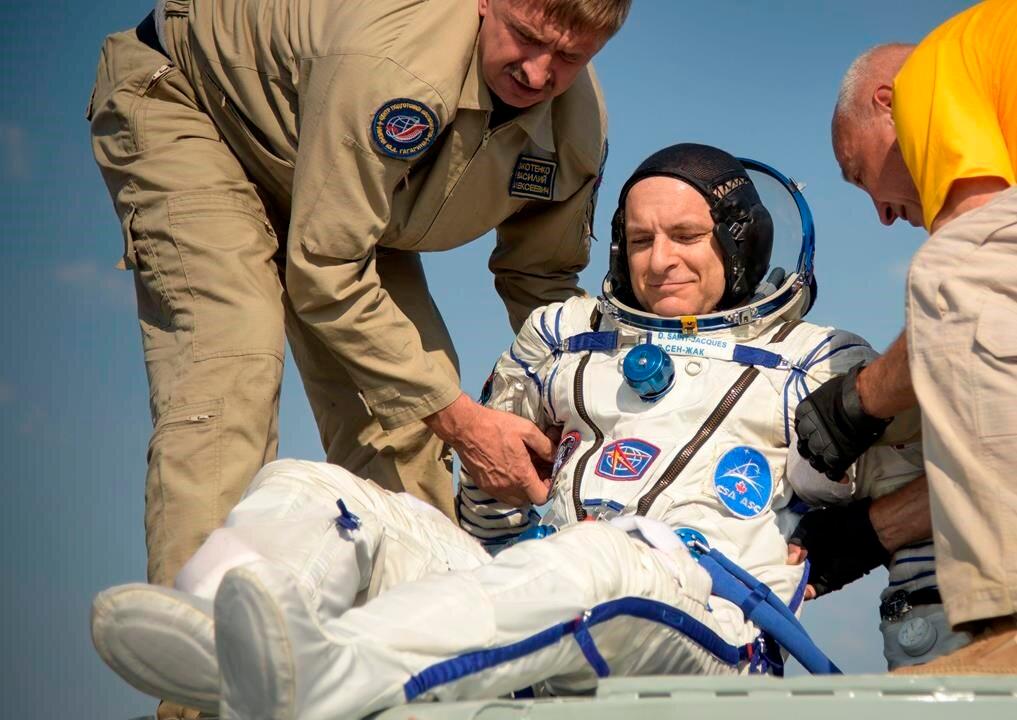LONGUEUIL, QB.—David Saint-Jacques returned to Earth on Monday after more than six months aboard the International Space Station.
The native of Saint-Lambert, QB., has set a record for the longest single spaceflight by a Canadian at 204 days.

LONGUEUIL, QB.—David Saint-Jacques returned to Earth on Monday after more than six months aboard the International Space Station.
The native of Saint-Lambert, QB., has set a record for the longest single spaceflight by a Canadian at 204 days.